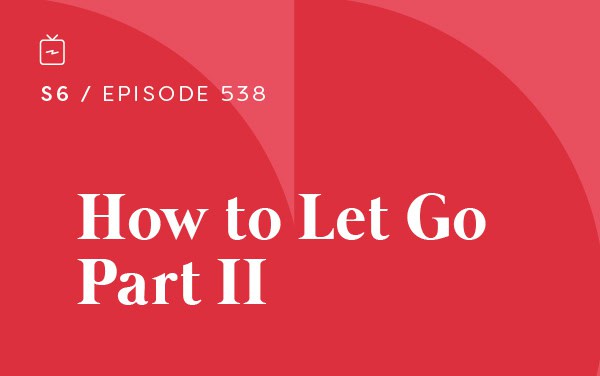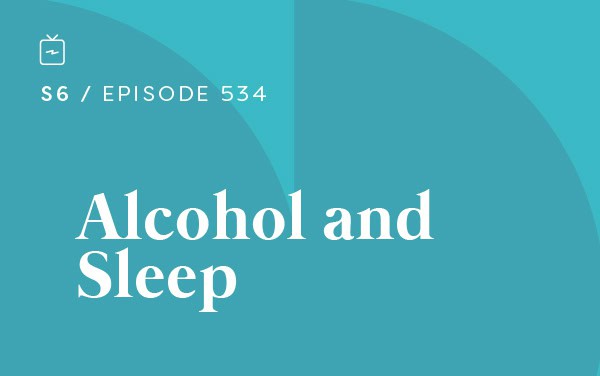
by Kris Oyen | Jun 9, 2025 | Podcast
Podcast: Play in new window | Download
Subscribe to the Recovery Elevator Podcast Apple Podcasts | | More
Today we have Kimmy. She is 34 years old from Montrose, Colorado and took her last drink on April 3rd, 2017.
This episode brought to you by Better Help – 10% off of your first month
Café RE – THE social app for sober people
Here are some upcoming events at RE:
Bozeman Retreat from August 6th-20th, 2025
Peru in October (registration closed)
Dry January 2026
Ukelele Course in February 2026
Costa Rica in February 2026
AF Songwriting Course in March 2026
[04:12] Thoughts from Paul:
A few weeks ago, Paul did an intro titled “How to Let Go” and then told us that had no idea how to let go. Since that episode, he has started looking at this from another angle.
Paul shares that there was a time in his life that he would drink over things that he was unable to let go of. He says that progress has not been in letting things go, but it has been in his reactions to events and happenings in life.
When drinking everything was a knee jerk reaction with no space between the stimulus and the response. Recovery has taught him how to pause, to wait, to gather his thoughts before responding to an event or trigger.
One strategy with this is to not add a good or bad label to whatever happens in life. What seems like an unfortunate life event now may later turn out to be a great thing. Our reactions to life in general are the key to letting go. If we lean into the space between stimulus and response, and remain neutral to all of life’s unfolding, there will be less that needs to be let go of.
[08:59] Paul introduces Kimmy:
Kimmy grew up Big Fork, Montana and grew up riding horses and competing in barrel racing and rodeos. She says overall she had a good childhood.
Kimmy says that she had her first drink when she was 17 and feels that drinking was a problem for her right from the start. Several events that happened in her teens drove Kimmy to use alcohol to cope with her feelings around them. She would take shots of her mom’s liquor and then drive 30 minutes to school already drunk.
After leaving college, a friend of Kimmy’s said she was moving to Telluride for ski season. Kimmy went with her and while the friend left after the season was over, Kimmy stayed because she enjoyed it there.
After having multiple rock bottom moments, Kimmy tried different techniques to quit drinking or moderate. They all backfired, she says. Eventually she turned to her faith in a moment of surrender. She didn’t quit drinking instantly, but over time grew to see that alcohol was no longer doing anything for her.
Kimmy took her last drink at the end of the ski season in 2017. It was one beer, and she isn’t even sure she finished it. She was able to quit and after nine months told her father, who also drinks, and he was so proud of her she just wanted to keep going.
Kimmy says working has been a big part of her recovery as she currently has four jobs. She stays close to her faith and although she doesn’t attend church, she reads her bible frequently. Kimmy has goals now and shares that she didn’t really have any after getting derailed by some events in her teenage years and turning to alcohol. It has taken time, but Kimmy is getting back to riding and competing and sees this current year of sobriety as a year of redemption as she looks forward to improving in these endeavors.
Recovery Elevator
It all starts from the inside out.
I love you guys.
RE on Instagram
Recovery Elevator YouTube
Sobriety Tracker iTunes

by Kris Oyen | Jun 2, 2025 | Podcast
Podcast: Play in new window | Download
Subscribe to the Recovery Elevator Podcast Apple Podcasts | | More
Today we have Santino. He is 37 years old from Taunton, MA and took his last drink on May 24th, 2022.
This episode brought to you by Better Help – 10% off of your first month
Exact Nature use code RE20 to save 20% off your order
Recovery Elevator has merch! We have hoodies, patches, shirts, tank tops and bracelets. Help us keep this project going and shred the shame!
Last call for registration to our sober travel trip to Peru. Registration closes tomorrow June 3rd.
A study on the state of restaurants revealed that 40% of restaurants in 2025 plan to dedicate more space on their menus for alcohol-free drink offerings. And Door Dash reported an 82% jump in non-alcoholic beer orders in 2025 alone. Things are changing and they are changing fast!
[03:29] Thoughts from Paul:
On episode 527, Paul talked about how Gallitin County, Montana is the drunkest place in America. Ironically, this is where much of this podcast is recorded, and this is where Paul got sober. We are reminded that quitting drinking can happen wherever, whenever, regardless of how drunk we think our cities/counties/states are.
Recently Paul read in a newsletter about a local event that said, “come join us for a night of alcohol-free country line dancing, swing dancing and two step”. Paul reached out to the organization putting it on and they thanked him for his support and said that they believe that country, swing and line dancing shouldn’t be exclusive to bars.
We at Recovery Elevator couldn’t agree more. Rule 22 for the win!
[08:18] Paul introduces Santino:
This is Santino’s fourth appearance on the podcast. He first appeared on episode 397, and then returned for episodes 449 and 491.
Santino is 37 years old, has been married for 10 years and they have two children aged six and almost one. He is originally from the Midwest but currently lives in Massachusetts. Santino is currently working on writing a memoir regarding his childhood.
Drinking got out of control for Santino in his late twenties when he realized he was becoming a daily drinker. Trying to moderate didn’t work as the line in the sand got further and further away for him and he was drinking in isolation. Santino says before he could reconcile with the fact that he didn’t know how to stop, he had to first define what an alcoholic was.
Santino had dabbled in AA in the past while in active addiction as well as during a court order after a DUI. He never identified with it because he wasn’t ready to quit. After reconciling that he had a problem, he started going to AA regularly and participated in the meetings. Santino really resonated with the idea of a higher power.
The first six months into his recovery Santino says he struggled with shame. Coming to terms with his past is something that he knows he will be living with indefinitely.
Santino works in the addiction field and understands that relapses can be part of many people’s recovery. And while he feels that relapse isn’t a bad thing but is greatly stigmatized.
Santino says the most profound healing that took place when he stopped drinking was his perception of himself. He stopped putting so much stock into how other people viewed him.
To put his years of sobriety in terms of themes, Santino shares that the first year was “darkness” the second year was “climbing” and the third year so far has been “practice”.
Since Santino’s last interview he has welcomed his second son, continued to work on his relationships, still has the same job with the homeless and people with addictions, and working on being the best dad he can be to his two sons.
Santino’s parting piece of guidance: you have to treat sobriety like you would treat anything else delicate in your life. It requires carefulness, it requires mindfulness, but it also requires full vulnerability.
Recovery Elevator
You took the elevator down. You have got to take the stairs back up.
You can do this.
RE on Instagram
Recovery Elevator YouTube
Sobriety Tracker iTunes

by Kris Oyen | May 26, 2025 | Podcast
Podcast: Play in new window | Download
Subscribe to the Recovery Elevator Podcast Apple Podcasts | | More
Today we have Jenny. She is 53 yeas old from Belgrade, MT and took her last drink on August 25th, 2015.
This episode brought to you by Better Help – 10% off of your first month
Exact Nature use code RE20 to save 20% off your order
The message that alcohol is good for you is outdated. Paul shares an article from GQ that was released shortly after the World Health Organization declared that no amount of alcohol is safe for you.
WELCOME to all our new listeners to the RE podcast!
[03:56] Thoughts from Paul:
In the interviews on this podcast, you’ve heard the word nature probably hundreds of times as a powerful tool to help overcome an addiction.
Today Paul shares with us a specific free tool that can enhance your experience in nature: the Merlin bird app.
There is science behind how birding can help you heal. Listening to birds reduces cortisol, slows your heart rate and triggers the parasympathetic nervous system which calms us.
The opposite of addiction is connection, and Paul shares that he feels a connection to some of his local birds. He encourages us to give birds a chance as they have the capacity to take our connection to nature to the next level.
[08:03] Paul introduces Jenny:
Jenny was originally a guest on episode 86.
Jenny lives in Belgrade, MT and says teaching fitness classes is her passion. She enjoys music, her chickens, playing golf and pickleball, and loves concerts and comedy as well.
Jenny had her first drink when she was just nine years old. Her parents drank socially and any time there was a party at their house, she and her brother or friends would sneak alcohol. In high school, she and her friends didn’t participate in activities, so they just drank and dabbled with marijuana and hallucinogens.
Jenny moved from Helena to Bozeman to attend college and it was then when the drinking and drug use ramped up. While working in a restaurant, Jenny says drinking after work was common, and she was later introduced to harder drugs which she used for several years.
Jenny quit the harder drugs but drinking remained. It ebbed and flowed after she got married and had kids. Her drinking escalated when her husband became a firefighter and would work very long shifts. This time was stressful for Jenny with multiple young children and battling postpartum anxiety. Over time Jenny would start drinking earlier in the day but felt she was very high functioning therefore didn’t see her drinking as a problem.
Jenny began to realize that her drinking was becoming an issue, but no one said anything to her, so she decided to quit on her own without telling anyone. She didn’t attend AA and just used exercise and podcasts to help her quit. It took a bit for others to notice, but she was confident in her decision in spite of them insisting that she didn’t have a problem.
In 2016, Jenny learned she had stage 2 breast cancer. She says that it was aggressively treated and once in remission, she didn’t know what to do with herself. She started running half marathons and decided to use her degree in exercise and wellness and started teaching exercise classes which she loves.
Recently, Jenny and her husband hit a rough patch, and they have been attending counseling. Their counselor told Jenny they thought she might be a dry drunk and suggested she start the AA program. Jenny says she needed to hear that and has recently began going to AA and has gotten a sponsor who she is about to tackle step work with. Jenny also has learned that she suffers from several different disorders that have given her a lot of “a-ha” moments about who she is.
Jenny shares her journey with the world now. She believes being our authentic selves is most important. Jenny has learned that she needs to protect her mental health and her sobriety above all.
Jenny’s parting piece of guidance: listen to that inner voice.
Recovery Elevator
We took the elevator down, we gotta take the stairs back up.
I love you guys.
RE on Instagram
RE merch
Recovery Elevator YouTube
Sobriety Tracker iTunes

by Kris Oyen | May 19, 2025 | Podcast
Podcast: Play in new window | Download
Subscribe to the Recovery Elevator Podcast Apple Podcasts | | More
Today we have Kayleen. She is 27 years old, lives in Baltimore, MD and she took her last drink on April 6th, 2025.
Sponsors for this episode include:
Better Help – 10% off of your first month
Café RE – the social app for sober people
There are a few spots left for Peru in October 2025. On this 10-night, 11-day trip of a lifetime, we will be hiking the Inca Trail and participating in two service projects. Registration closes in about three weeks.
[02:35] Thoughts from Paul:
There is so much speak in the recovery world about letting go. In recovery meetings, many of the topics are centered around letting go.
Paul shares that he has spent years thinking he needed to figure out HOW to let go. Like there was a secret technique that was missing. In fact, all you can do is realize you’re holding on and this awareness is the first real step towards letting the sunshine in. Once you realize you are holding on, or bring awareness to something weighing you town, it immediately begins to shift on its own, and you don’t have to let it go.
Another thought is that it’s not even about letting GO, it’s more about letting IN. If something is nagging you, don’t let it go, let it in. It will eventually leave on it’s own, when the time is right, when it’s resolved.
Paul encourages us to have the strength to see where you’re holding on and then invite it in a little more.
[09:23] Paul introduces Kayleen:
Kayleen is 27, lives in Baltimore, and works as a server in a fine dining restaurant. She enjoys walking, being in nature, painting and going to Café RE meetings.
Kayleen says she never drank normally. She recalls being in ninth grade and taking swigs of liquor from her mom’s cabinet before getting on the school bus in the morning. Looking back, she thinks that she was always looking to escape her feelings.
In college, Kayleen didn’t go to parties and drink with others. She preferred to drink at home and didn’t want anyone to know how much or how often she was drinking. She would frequently drink before going to class and eventually was suspended from the university.
Kayleen was sent to detox three times in college for her drinking and self-harm. She wasn’t ready to quit drinking and would start back as soon as she got out. When she was 21, she was arrested twice for DUIs, and she wasn’t willing to stop drinking.
A year later Kayleen was married and their relationship revolved around alcohol where they drank together daily. Over the next three years Kayleen gained over 100 pounds, and her mobility was suffering. A doctor told her that due to her poor health, she might not see age 30. For Kayleen, the idea of quitting drinking didn’t feel like a possibility.
In April of 2023, Kayleen discovered the RE podcast. Within a month of listening frequently, Kayleen decided to quit drinking on May 25th – just for that one day. She woke up feeling so proud of herself she kept going. A few months later she joined Café RE and found community.
Kayleen began walking and ended up losing 60 pounds in the first year of sobriety. Her wife had quit drinking too, but that wasn’t enough to save the marriage. Kayleen ended up divorcing her wife and moved from Indiana to Baltimore to stay with her accountability partner that she met through Café RE.
In April of this year, Kayleen’s sister got married and it was at the wedding that she relapsed. She said within a day she was drinking just like she was before quitting and quickly turned to her community for help. Kayleen says she decided to quickly shred the shame and make sure she didn’t get stuck in a “woe is me” place. The community lifted her up and helped her realize that she didn’t lose her sobriety time and Kayleen shares that she learned a lot from the experience.
Kayleen’s parting piece of guidance: Just keep trying. Never, never, never give up on yourself.
Recovery Elevator
You took the elevator down, you gotta take the stairs back up.
We can do this.
RE on Instagram
RE merch
Recovery Elevator YouTube
Sobriety Tracker iTunes

by Kris Oyen | May 12, 2025 | Podcast
Podcast: Play in new window | Download
Subscribe to the Recovery Elevator Podcast Apple Podcasts | | More
Today we have Ben. He is 45 years old from Liverpool, UK and had his last drink on September 26th, 2021.
Sponsors for this episode include:
Better Help – 10% off of your first month
Sober Link – $50 off of device using this link
[02:01] Thoughts from Paul:
According to Stanford neuroscientist Andrew Huberman, all health, longevity, and your daily moods, along with your overall state of being, is tied to the quality of your sleep.
When you drink alcohol, the quality of your sleep drastically diminishes, leaving you in a state of disrepair the following day.
Paul shares many examples of how poor sleep affects our bodily functions and how drinking even small amounts of alcohol adds fuel to that fire.
When we remove alcohol and we begin entering deep sleep cycles again, all of these negative consequences of poor sleep start to disappear. It may not happen in one night but within time, trust the body and this function will return to normal.
[09:22] Paul introduces Ben:
Ben was a previous guest on Episode 364.
Ben started drinking when he was 14. It was tied into music and his social life. Alcohol and music helped him to escape the strife that he was having at school with bullies and being different than everyone else.
Drinking was a huge part of his rock and roll lifestyle. Drinking with bandmates while writing music, going out after practice and drinking after performances were all part of the landscape for Ben in his early 20s. This continued and progressed over the next decade.
Towards the end of his 30s, Ben says things started to get really dark for him. He found himself just wanting to drink on the tour bus and be left alone. The days of wanting to drink to socialize and be connected were gone for him.
When he realized his drinking was becoming an issue, Ben tried to stop for periods of time. Later on, to create accountability Ben would make pacts with his brother where if he drank on one of his 30-day breaks, his brother could sell Ben’s guitar. The idea of stopping completely was unthinkable to Ben at the time.
After a situation where Ben almost lost all of his musical equipment at the end of a tour, he started to look into AA. It was recommended to him by someone he knew who had gotten sober. He was a bit dubious of it because he thought AA was only for people that had a problem. When Ben first spoke at the meeting he thought he might end up making light of his story but found himself crying instead and made the statement that he was scared that if he never drank again, that there would be nothing for him to look forward to for the rest of his life.
Throughout 2020 and 2021, Ben would find himself having two day drinking binges nearly every week. He had just gotten an apartment without housemates or family for the first time and had no one he had to be accountable to. The fact that his job wasn’t 9-5 gave him a lot of free time. The moderation techniques began again because he wasn’t ready to believe he had to quit entirely.
After a few rock bottom incidents, Ben finally made the decision to stop. In the first few months he used a variety of tools including harm reduction. He allowed himself to play video games again and eat food that he had always denied himself while drinking. When he reached out to be on the podcast the first time, he utilized that as motivation to stay sober at least until the interview a few months later.
Year one of sobriety found Ben still having cravings and just getting used to life being sober but says years two and three found him celebrating personal and professional successes. He says life can still be complicated at times but has learned to use obstacles as opportunities. Meditation has been a powerful tool for Ben in his recovery in addition to journalling, limiting his phone usage, reading and exercise.
Recovery Elevator
You took the elevator down, you gotta take the stairs back up.
I love you guys.
RE on Instagram
Café RE
RE merch
Recovery Elevator YouTube
Sobriety Tracker iTunes







